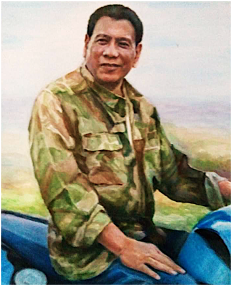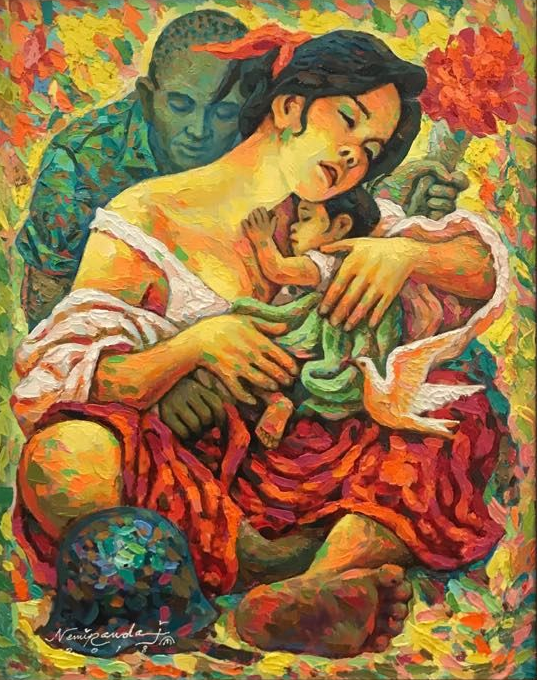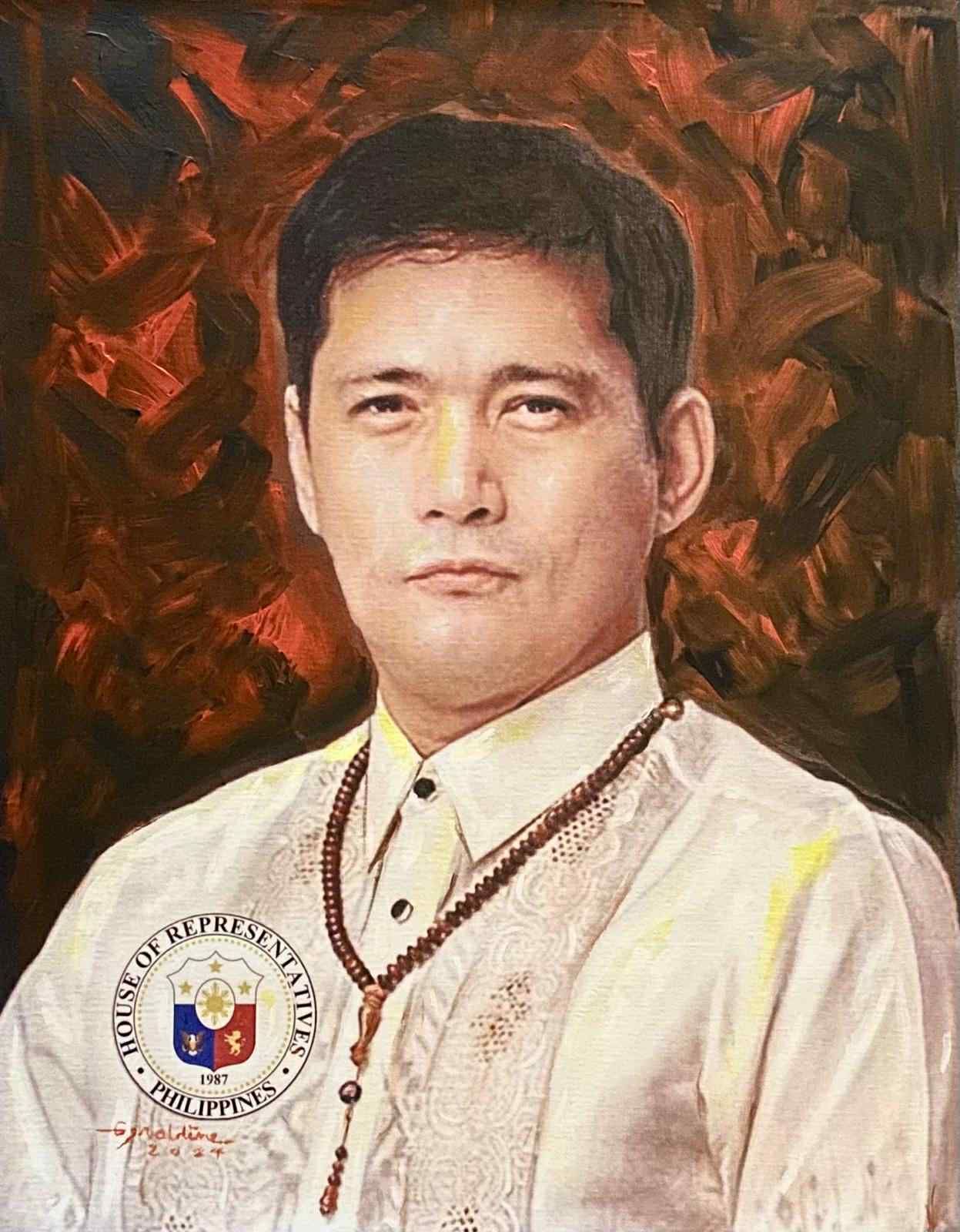Maria Imelda Josefa Remedios "Imee" Romualdez Marcos-Manotoc was born on November 12, 1955 in Mandaluyong to Imelda and Ferdinand Marcos. She has three other siblings: Ferdinand "Bongbong" Marcos Jr., the current president; Irene Marcos-Araneta; and Aimee Marcos, who was adopted.
Since 2019, she serve as a Senator while she produces film. From 2010 to 2019, she previously served as governor of Ilocos Norte and from 1998 to 2007 as the representative of Ilocos Norte's 2nd district. She is a daughter of 10th Philippine president Ferdinand Marcos and former first lady Imelda Marcos, and the older sister of the current president, Bongbong Marcos.
In 1965, when she turned ten years old the day afterwards her father was elected. In 1999, in an interview with her family-backed Filipinas Magazine, she admitted that she was uncomfortable living in the palace because it was too confining, very formal, and fixed. She also added that it is "not necessarily the most appropriate place to bring up a kid but it was quite nice".
While residing at the palace, Marcos asserted that she attended 'regular' schools in Manila. However, she had to discontinue her education due to the challenges faced by the First Family in going out caused by protest rallies outside Malacañang. These rallies, met with military assaults resulting in numerous Filipino deaths, were a response to her family's enduring conjugal dictatorship that spanned over two decades.
In 1997, Sen. Imee Marcos' political career began during her father's martial law regime, becoming chairperson of the Kabataang Barangay (KB) Foundation and in 19984, she became a member of the Batasang Pambansa. With her interest in media, she produced various film projects such as Nonoy Marcelo-directed propaganda films: the 1977 documentary Da Real Makoy and the 1978 television film Tadhana, the first Philippine animated feature film; in 1978, she helped establish the Metro Manila Popular Music Festival, and in 1982, was made director general of the Experimental Cinema of the Philippines. In 1986, after her family was ousted from power in the People Power Revolution, she and her husband Tommy Manotoc were exiled in Morocco.
In 1989, after the death of Ferdinand Marcos, President Corazon Aquino allowed the Marcoses to return to the Philippines in 1991. In 1998, Imee ran for political office, and won three terms in the House of Representatives and three terms as governor of Ilocos Norte. In the 2019, she was elected to the Senate elections for a six-year term. In the 2025, she ran for re-election midterm elections, and won placing 12th, securing a second term.
Amidst the growing rift between the Marcos and Duterte families during her brother Bongbong's administration, she has frequently sided with the Dutertes and their allies.
Education
During the 2019 elections, Marcos's educational background has been steeped in controversy. Under her parents' conjugal dictatorship, Marcos graduated from at least four schools (including three universities), she graduated as "Cum Laude" and "class valedictorian" in two public occasions.
Primary and secondary education
Sen. Imee Marcos attended the Institucion Teresiana (now Saint Pedro Poveda College) in Quezon City from Kindergarten through Grade 4 where she earned first honors. Then she transferred to the Convent of Our Lady of Assumption at Herran Street in Manila for Grade 5 to first year high school, where she also earned first honors. Sen. Imee Marcos later transferred to the "American School" (now International School Manila) in Makati.
Declaration of martial law
Marcos and her siblings (Ferdinand Jr. and Irene) were studying overseas before Marcos signed Proclamation No. 1081 on September 21, 1972. The siblings stayed there until they ended their studies, but would come home for Christmas and summer holidays. She turned 18 - the Philippines' age of majority, fourteen months after the declaration of Martial Law, and played various political roles in the Martial Law administration - as chairperson of the Kabataang Barangay and as assemblyman to the Batasang Pambansa. In 1986, she was already 30 when the People Power revolution finally deposed the Marcos administration.
Administrative and political roles : Kabataang Barangay Foundation
In September 1977, after returning from Princeton, Marcos entered the world of politics as chairperson of the Kabataang Barangay Foundation.
Assemblyman for Ilocos Norte to the Batasang Pambansa
On June 30, 1984, she won a seat as one of two assemblyman to the Batasang Pambansa for Ilocos Norte (the other assemblyman was Antonio V. Raquiza) under the wing of her father's dictatorship. She formally held this role until the Batasang Pambansa was dissolved in the aftermath of the 1986 EDSA Revolution, which ousted their family from power.
National Media Production Center and Experimental Cinema of the Philippines. From 1979 to 1986, she was consultant to the minister of the National Media Production Center in Quezon City. From 1982 to 1985, she was director general of the Experimental Cinema of the Philippines (ECP) after recommendation from her parents. She served as co-producer of the films The Boatman, Brutal, and Scorpio Nights.
As the mid-1980s approached, the collapse of the Philippine economy forced government to reduce the budget of the ECP, and to raise funds. At around this time, Imee Marcos promoted Johnny Litton, who had been deputy director general to chief executive officer of the ECP under her, and Litton's decision to screen extremely explicit films such as Scorpio Nights (Regal Films), Company Of Women (Athena Productions, Inc.). Other roles before the 1986 revolution.
Other media work
From 1975 to 1986, Imee produced the television shows Kulit Bulilit and Kaluskos Musmos. In 1977–1979, she was also a consultant/writer of the Children's Television Workshop for Asia and New York. During the anniversary of Martial law in 1978, she also collaborated as a producer with cartoonists José Zabala-Santos and his nephew Nonoy Marcelo to work for the first-ever Philippine full-length animated film titled Tadhana ("Destiny"), which originally conceived as a television pilot, premiered on Philippine television.
Sen. Imee Marcos was once a columnist of Manila Bulletin (then known as Bulletin Today) in Manila, publisher of the Filipino Film Review, publisher and editor of the Kabataang Barangay Foundation, Makati, Metro Manila, and special consultant to the chairperson of the board of BBC-2, RPN 9, and IBC 13. She was also the producer of Metro Magazine (1975–1986).
1986 ouster and life in exile
Main articles: Assassination of Ninoy Aquino and People Power Revolution
In 1983, increasing unrest springing from the economic collapse of the Philippines in the years after the assassination of Senator Benigno Aquino came to a head in February 1986, when the EDSA Revolution succeeded in unseating the Marcoses from Malacañang palace.
Fearful of a scenario in which Marcos's presence in the Philippines would lead to a civil war, the Reagan administration flew Marcos and a party of about 80 individuals- the extended Marcos family and a number of close associates - from the Philippines to Hawaii despite Marcos's objections. Imee and her family were on the flight with her parents.
The exiles stayed at Hickam Air Force Base at the expense of the US Government. A month later, they moved into a pair of residences in Makiki Heights, Honolulu, which were registered to Antonio Floirendo and Bienvenido and Gliceria Tantoco. In 1989, Marcos would eventually die in exile.In 2019, Marcos (3rd from right) flashes President Duterte's signature fist during the proclamation of senators at the Philippine International Convention Center Forum.
After the 2019 Philippine Senate election, she placed eighth and won one of the twelve contested seats. On June 30, 2019, Marcos officially took office in the Senate and filed various bills during her first months including her own version of the SOGIE bill or the Sexual Orientation or Gender Identity or Expression Bill that was first filed by fellow Senator Risa Hontiveros.
In the 2025 Philippine Senate elections, Marcos was included in the Alyansa para sa Bagong Pilipinas slate until she left the group twice. She was endorsed by Vice President Sara Duterte formally adopted as a guest candidate in the DuterTen slate. After she placed twelfth and won a contested seat, Marcos seeks to protect Vice President Duterte from the impeachment.
18th Congress (2019–2022)
On July 22, 2019, Marcos was appointed as chair of the Philippine Senate Cultural Communities Committee.
On August 6, 2019, Marcos filed a bill that would make men also liable for committing adultery. Following the controversial transfer of ₱42 billion by the Department of Health to the Department of Budget and Management-Procurement Service (DBM-PS) for the purchase of COVID-19 pandemic personal protective equipment, in September 2021, Marcos filed a bill seeking to abolish the DBM-PS and the Philippine International Trading Corporation to "address systemic corruption" in the DBM-PS. In September 2021, the Philippine Offshore Gaming Operator (POGO) Law was signed into law by President Duterte. Senator Imee Marcos voted in favor of the law, which regulated and legalized POGOs, which are gambling corporations. The illegal activities of the POGOs were known since 2016, and were widely exposed to the public even before the law that legalized them was enacted.
19th Congress (2022–2025)
In the 19th Congress, Marcos was named as chair of four Senate committees: Cooperatives; Electoral Reforms and People's Participation; Foreign Relations; and Social Justice, Welfare and Rural Development. In December 2022, Marcos filed "fruit salad" bills promoting and protecting the Philippine's pineapple, moringa, dragon fruit, and mango industries.
In June 2023, Marcos filed a Senate resolution seeking to investigate a "request" by the United States government for the Philippines to temporarily house Afghan refugees. Marcos maintained the request lacked transparency and said some refugees, who are "supporters of the US and possibly, even former employees of the US government or US companies", pose a threat to public safety and national security.
In November 2023, Marcos reaffirmed her support and loyalty to former president Rodrigo Duterte and Vice President Sara Duterte regarding the issue of confidential funds, while stating that the Philippines does not need to cooperate with the International Criminal Court (ICC) as it will "cause great shame for the Filipinos" citing the courts are working, free and strong.
In October 2, 2024, Marcos would file her certificate of Candidacy for re-election as senator for the 2025 Senate elections, she initially declined to be a part of her Brother's Senatoial slate, Alyansa para sa Bagong Pilipinas back in September 28, 2024, but she would later be reintroduced back in the slate on February 11, 2025 during their Proclamation rally.
In March 2025, Marcos would lead a Senate investigation regarding the circumstances surrounding the arrest of Rodrigo Duterte, which she stated had "deeply divided the nation."
In March 26, 2025, Marcos would withdraw again from Alyansa after the arrest of Rodrigo Duterte, saying that she could "no longer stand on the same platform with the rest of the Alyansa senatorial candidates."
in April 14, 2025, Vice President Sara Duterte endorsed Marcos's re-election bid in a 31 second political advertisement which the two were dressed in black, slammed the current state of the Philippines.
In May 10, 2025, Marcos and former fellow Alyansa mate, Camille Villar, were adopted by Oppositional senatorial slate, Duterten, led by PDP as guest candidates.
20th Congress (2025–present)
Party affiliation
Marcos formerly belonged to the Kilusang Bagong Lipunan (KBL), the political party of her father. In 2009, she and her family joined the alliance of the Nacionalista Party in support of its 2010 presidential candidate, then-Senator Manny Villar. Incidentally in 1978, her father used to be a member of Nacionalista before he founded KBL.
As with other Marcos family members who have stayed in the public eye since their return to the Philippines, Imee Marcos has received significant criticism for instances of historical revisionism. Prominent examples of statements by Imee Marcos was regarding the crimes and excesses of the martial law era.
Currently, Sen. Imee is serving as a Senator and in full-support of Duterte Bloc as she always say, “If my father is alive, he would have wanted me to do what is right for my country.” A very strong message from Sen. Imee Marcos.





















